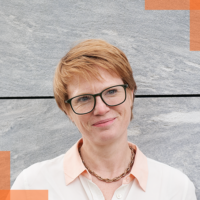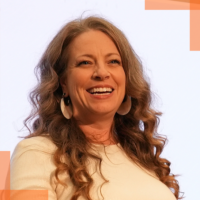The Next Frontier of Green Growth: Women Leading the Cleantech Transition
This year, Cleantech Group is celebrating International Women’s Day and Women’s History Month by showcasing trailblazing women who lead groundbreaking cleantech efforts to build a greener future.
On both sides of the Atlantic, cleantech is a strategic priority with great sums of money and regulatory incentives dedicated to its uptake. However, in 2023, money and incentives will simply not be enough. We need a fundamental approach to how the cleantech sector can spur green growth while embracing diversity, equity, and inclusion.
According to GEM (Global Entrepreneurship Monitor), approximately one-third of high-growth entrepreneurs and innovation entrepreneurs who concentrate on both domestic and foreign markets are women. Women entrepreneurs in upper-middle-income nations are among the most creative and high-growth entrepreneurs globally, and they have an equal focus on global markets compared to their male counterparts.
However, in all sectors including cleantech, women are notably underrepresented.
From our conversations with different stakeholders of the ecosystem, we are optimistic on how the cleantech industry can redress this imbalance. As all interviewees highlighted, a career in cleantech is fulfilling a larger purpose, which is the new secret weapon in winning the race to net-zero.
These seven leaders share their insights on initiatives aimed at creating a more environmentally sustainable future.
Irina Gorbounova, Vice President M&A and Head of XCarb Innovation Fund at ArcelorMittal
 Irina has been working in the steel industry for almost 20 years focusing on M&A and strategic investments. The problem steel has is down to how prolifically used it is – close to 2 billion tonnes consumed every year resulting in a large carbon footprint – about 8% of global GHG emissions. While this is a huge challenge, Irina views it as a great opportunity to make an impact and create a more sustainable future by identifying and supporting clean technologies which can help decarbonize the industry.
Irina has been working in the steel industry for almost 20 years focusing on M&A and strategic investments. The problem steel has is down to how prolifically used it is – close to 2 billion tonnes consumed every year resulting in a large carbon footprint – about 8% of global GHG emissions. While this is a huge challenge, Irina views it as a great opportunity to make an impact and create a more sustainable future by identifying and supporting clean technologies which can help decarbonize the industry.
Following the 2015 Paris Agreement, she became increasingly involved in learning about climate and working on a proposal to set a decarbonization investment platform to support the broader decarbonization efforts of ArcelorMittal. In March 2021, ArcelorMittal launched the XCarb Innovation Fund with the objective to support disruptive clean technologies. Irina views collaboration as essential to reaching net-zero. It is, “As big of a challenge for any one company, country or region to tackle alone.”
When asked what advice she would give to a woman considering a career in cleantech, she underlined three things: perseverance through obstacles, embracing a growth mindset, and exercising gratitude. Irina is a future-focused person, and we could not miss the opportunity to ask her about promising cleantech applications. Her pick? Long duration energy storage and fusion.
Araceli Fernandez Pales, Head of Technology Innovation Unit, International Energy Agency

Araceli is an engineer by background and is currently leading the Technology Innovation Unit at the International Energy Agency. Araceli views her job as a mission. Given the magnitude of climate change, “It feels natural to contribute to its mitigation; it gives a real purpose to my work.”
Regarding the biggest challenge to getting to net-zero, Araceli underlines the need for regulatory speed. She mentions that it can take more than a decade to build a new transmission line or a new gas pipeline. In turn, this hinders the expansion and enhancement of electricity grids or the rolling out of new hydrogen distribution and storage and CO2 management infrastructure.
As a woman in STEM (Science, Technology, Engineering, and Mathematics), Araceli finds it rewarding to see many women opting for technical studies. She feels that perseverance and hard work are key to a successful career. When we asked her about her favorite cleantech, she cited machine learning as a tool with the potential to revolutionize the way we innovate across the board.
Andreea Constantinescu, Managing Partner, Planet First Partners

In 2018, Andreea took a sabbatical that changed her life. After more than 12 years in mainstream finance roles that saw her moving from New York to London, she received an opportunity to join a venture connecting her two passions: protecting the environment and investing. Looking back, she could never imagine that a time would come when it would be possible to align one’s career with their value set. Andreea believes that, increasingly, professionals across all sectors have a generational opportunity to transition their career without compromising on growth prospectives or financial rewards.
“Now is the time to do it. Cleantech is booming across all economic aspects and there is the ability to make a foundational contribution.” Andreea underlines the critical role of technology and private capital to enable the green transition. She notes that today, the intersection of three key megatrends: tech maturity; social, governmental and corporate demand for cleantech solutions; and pressing resource scarcity, make climate tech investable at scale, and, at above market returns.
As for the one technology that could save the world, Andreea believes it is the interplay of different technologies that have benefitted from significant advancements or economies of scale such as quantum computing, sensors, 3D manufacturing, and satellites, that drive real world solutions. When pressed to pick a single technology with the greatest ability to drive decarbonization, she is passionate about the potential of green hydrogen in green steel, green ammonia and synfuel for aviation, which is why Sunfire was her first investment at Planet First.
Charlotte Beard, Senior Vice President for Finance, Form Energy

Charlotte has been working in finance for over 20 years. During our conversation, she recalled how her job at Apple came to be. At Apple, there was another ‘Charlotte’ that gave her an opportunity. Although she had a very technical background and was well qualified to take the job, Charlotte did not have an Ivy League degree or a big brand name company on her resume at that point.
Charlotte’s future supervisor went off-script and took a chance on recognizing that she was the best fit for the job. Her supervisor kept an open mind and that is what Charlotte advises any woman considering a career in cleantech, “Have an open mind, high risk tolerance, passion, and look into the things that you deeply care about.”
Charlotte deeply cares about lifting other women and is a founding member of Chief, a private membership network focused on connecting and supporting women executive leaders. As for the biggest challenge for a successful energy transition, she points to legacy supply chains. Luckily, her favorite cleantech, multi-day duration storage, can provide a viable solution to that, along with ensuring we have clean electricity when the sun is not shining.
Olivia Breese, CEO and Senior Vice President, Power-2-X, Ørsted

Olivia’s career has been about cleantech from the beginning. Her original entry point was as a human rights lawyer from which she pivoted to financing renewable energy projects. Her curiosity and passion to have an impact led her to transition from law to business.
At Ørsted, Olivia was an early member of the offshore wind M&A team, with a focus on originating and executing on innovative ideas in various forms – whether early joint ventures in new markets or incubating business model innovations such as hydrogen. Most recently, Olivia was appointed CEO of the Power-2-X business which focuses on providing decarbonization solutions for hard-to-electrify sectors such as heavy industry, chemicals and steel through green hydrogen and e-fuels. As this is a new business unit for Ørsted, we could not help but ask Olivia about what the EU can do to lead the global cleantech race.
Olivia advised, “Speed in relation to regulation, speed in production, and a focus on the offtake side to electrify heavy industry.” As for her advice to women considering a career in cleantech, she stresses the importance of passion, a sense of purpose, and always doing what’s fun. As Olivia puts it, cleantech ticks all the boxes. When it comes to her favorite cleantech, it comes as no surprise that Olivia picked the happy marriage of offshore wind and green hydrogen to enable society to decarbonize quickly and at scale.
Leah Perry, Senior Manager, Cleantech, MaRS Discovery District

Leah Perry was always interested in the startup ecosystem and got involved in the cleantech sector early in her career. Leah lists human behavior as one of the main challenges in overcoming the climate crisis.
“If the world simply changed the way we consumed (and grew) food, for example, the world would experience incredible environmental benefits. Technological advancements will always support this transition but without the willingness for consumers to change their behaviors, we won’t experience the change we need to overcome the climate crisis.”
Leah’s advice for female professionals in male-dominated industries is to be confident. “Confidence grows confidence,“ she adds. She thinks it is crucial for young professionals to take time to explore their passions and connect with people that inspire them. She highlights the collaborative nature of the sector as “a one-of-a-kind ecosystem where people are eager to support you.”
Lisa Ann Pinkerton, Founder, Women in Cleantech and Sustainability, Founder & CEO, Technica Communications
 Lisa Ann became conscientious about her role in the environment from a very young age. She transitioned from news reporting to public relations with a dedication to “helping the stories of the climate tech movement gain the attention they deserve.”
Lisa Ann became conscientious about her role in the environment from a very young age. She transitioned from news reporting to public relations with a dedication to “helping the stories of the climate tech movement gain the attention they deserve.”
Lisa Ann founded Women in Cleantech & Sustainability (WCS) as an international community giving all genders the support, community, and confidence they seek to thrive in response to the low representation of women in the industry. In December 2021, she launched the Earthlings Podcast “to highlight opportunities and challenges presented to humans living in the 21st century and the technological advances we can expect” and “to bring more average people into the climate fight.”
Her advice to any woman considering a career path in cleantech is to align themselves with external communities locally, nationally, and internationally.
Closing the Gender Gap
Worth noting are organizations working to support women in clean technologies.
One such organization is the Equality in Energy Transitions (formerly C3E International), a network of governments, working under the International Energy Agency and the Clean Energy Ministerial.
The four pillars of their work:
- Providing data to policymakers to mainstream gender in policymaking.
- Supporting women in energy careers and energy companies to achieve their equality ambitions.
- Raising awareness on gender issues in the energy sector.
- Developing cross-cutting partnerships with national and international initiatives to elevate women in the energy sector.
Cleantech Group’s Efforts
Recognizing the need for progress when it came to diversity in the ecosystem, and our ability to make an impact even in a small way, Cleantech Group embraced the task of diversifying the speaker bench for our Forums with the hope that this would also improve the diversity of participants.
Starting in 2018, the team made a commitment to phase out all male panels and ensure panels at our Forums were more diverse by focusing on gender and geographic balance when recruiting speakers.
Evaluating the results of our efforts since 2018 shows there has been some improvement, but there is much more to be done. We have seen an improvement in female speaker involvement at Cleantech Forums across the board:
- Cleantech Forum Europe: Female speaker participation has grown from 21% in 2018 to 35% in 2022.
- Cleantech Forum Asia: Female speaker participation has grown from 17% in 2018 to 30% in 2022.
- Cleantech Forum North America: Female speaker participation has grown from 17% in 2018 to 34% in 2022.
The work to date has been successful and left a positive impact on our events, allowing the Forums to offer better perspective and insight. There has also been better diversity in attendees which has seen total growth of female participants go up about 8% across all Forums since 2018.
Even with the positive results, there is a need for us to commit to go beyond just gender balance at our events and begin to embrace all of the facets of diversity, equity, and inclusion, creating more opportunities for people of color, different levels of experiences and expertise, different cultural backgrounds, and different ways of thinking and learning.



